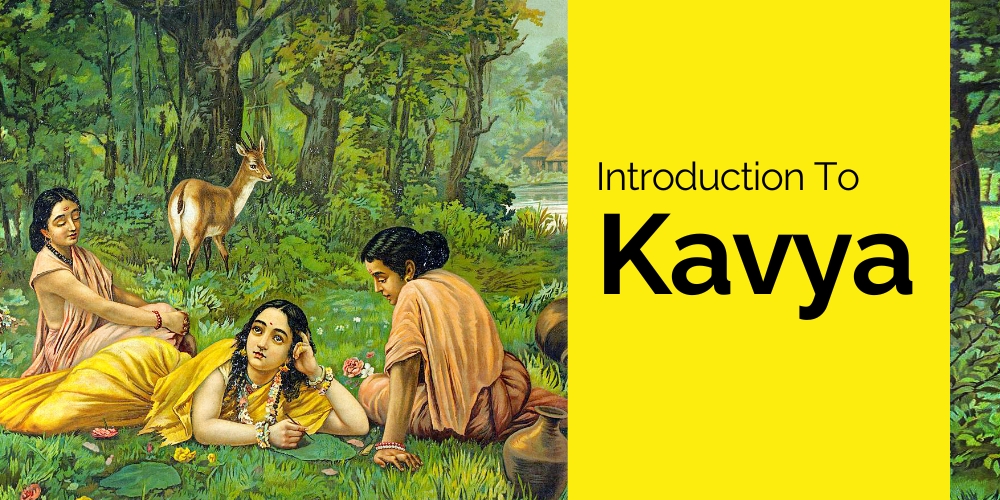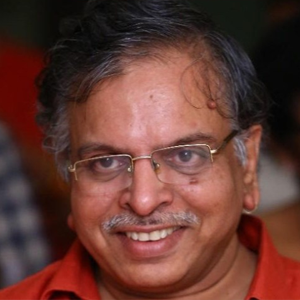
Introduction to Kavya
This course explores the rich tradition of Kavya (poetry) in Sanskrit and regional Indian languages. It delves into the distinct features of Kavya, the different types of poetry, the theoretical frameworks underpinning Kavya Shastra, and how Kavya evolved over time, influencing and being influenced by various cultures.
Participants will gain an in-depth understanding of the unique poetic forms, their development, and their relevance in contemporary literature.
*The Course may not be offered if the number of registrations is less than 15.
27 February 2025 - 3 July 2025
7:00 PM-8:00 PM IST
Every Thursday (Except 13th & 20th March, 2025)
Introduction
This course is designed to provide a comprehensive overview of Kavya, focusing on its evolution from classical to modern times. Through the examination of key texts, theories, and poetic frameworks, the course covers various Kavya genres, the influence of different regional traditions, and how these forms of poetry express the essence of Indian aesthetics. The course also includes a comparative analysis with global poetic forms, making it suitable for anyone interested in understanding Indian poetics in a broader cultural context.
Unique Pedagogy : Two days immersive Experience in a Gurukulam
We have designed this learning experience not only to provide knowledge but also to help you embody it. After completing the online sessions, you will have the opportunity to participate in a unique, immersive experience at our INDICA-RITHAMBHARA Gurukulam in Bengaluru. Over two days (dates to be determined during the online sessions), you will perform a Homam with your fellow participants, engage with faculty members, listen to guest speakers, and fully embody the knowledge acquired. Please note that accommodation will be provided free of charge; however, participants will need to arrange their own travel.
Course Objectives
- To introduce students to the foundational concepts and features of Kavya in Sanskrit and regional Indian literatures
- To explore the various types of Kavya and their distinct characteristics
- To examine key theories from Kavya Shastra, including Rasa, Dhvani, Vakrokti, and Riti, and their application in understanding poetry
- To analyze selected texts to appreciate the diversity and depth of Indian poetic traditions
- To provide a historical perspective on the evolution of Kavya and its modern relevance
Course Outcomes
- Develop a clear understanding of what constitutes Kavya and its unique characteristics
- Differentiate between various Kavya genres and their narrative/non-narrative structures
- Gain insights into Kavya Shastra’s theories and their role in shaping classical and modern poetry
- Appreciate the role of regional languages in the development of Indian poetics
- Engage in critical discussions on selected Kavya texts and their thematic elements
Course Syllabus
Module 1: What is Kavya?
- Features of Kavya as distinct from other classical Sanskrit and Indian texts
- Concepts of Kavi, Kavitva, and Kavya
- Comparison of Kavya and non-Kavya forms of poetry in Sanskrit and other Indian languages
- Kavya poetry in comparison to the other global forms of poetry
- Padya, Gadya, and Champu Kavyas
- Muktaka and Prabandha Kavyas
- Plot-based categories: Prakhyaata, Utpaadya, and Misra Kavyas
- Non-narrative Kavyas
- Sravya and Drisya Kavyas
Module 3: Survey of Kavyas
- A survey of key Kavyas in Sanskrit
- Ramayana as the Adi Kavya and the ideal Kavya
- Regional Indian language Kavyas
- Assigned Reading: Selected verses from Kalidasa’s Meghaduta or Raghuv
amsha.
Module 4: Kavya Shastra
- Understanding Kavya through Natya Shastra
- Key concepts from Kavi Shiksha Granthas, Lakshana Granthas, Chando Granthas, and Alankara works
- Kavyatma theories: Alankara, Rasa, Dhvani, Vakrokti, Riti, and Auchitya
Module 5: Drisya Kavya – Sanskrit plays, the visible Kavya
- Dasa Rupaka: Classification of Sanskrit plays
- Survey of major Sanskrit plays
- Reading class: Sample portions from Sanskrit plays
Module 6: Sravya Kavya – The Audible Kavya
- Praudha and Sarala Kavyas
- Non-narrative Kavyas, Sandesha Kavyas (e.g., Megha Sandesha)
- Muktaka Kavyas, Shatakas (e.g., Surya Shatakam)
Module 7: Sanskrit Kavya in Recent and Modern History
- Women poets and their Kavyas
- 17th to 19th-century Sanskrit plays and Kavyas
- 20th and 21st-century Sanskrit Kavyas
Module 8: Kavya in Regional Indian Literature
- Distinct features of regional Kavyas
- Poetics in regional languages
- Textual study: Analyzing poetic excerpts from regional language Kavyas
Module 9 : Kavya as a Knowledge System
- Knowledge imparting function of Kavyas as a Kavya Prayojana
- Scholarly nature of Kavis and Knowledge discussion portions of Kavyas
- Connection of Kavyas with Itihasas and Puranas as knowledge systems and narratives as creative expressions of knowledge
Reading List
- Selected verses from Kalidasa’s Meghaduta or Raghuv
amsha
Course Features
- Live Interactive Sessions: Participate in live lectures and discussions with ample opportunities for Q&A.
- Flexible Learning: Access class recordings and materials at your convenience for asynchronous learning.
- Certificate of Completion: Demonstrate your new knowledge with a certificate upon successfully completing the course.
*Important Enrollment Notice: Please note that this course requires a minimum of 15 registrations to commence. If the required number of students is not met, enrolled participants will be notified promptly and provided with options for a full refund or alternative courses.

